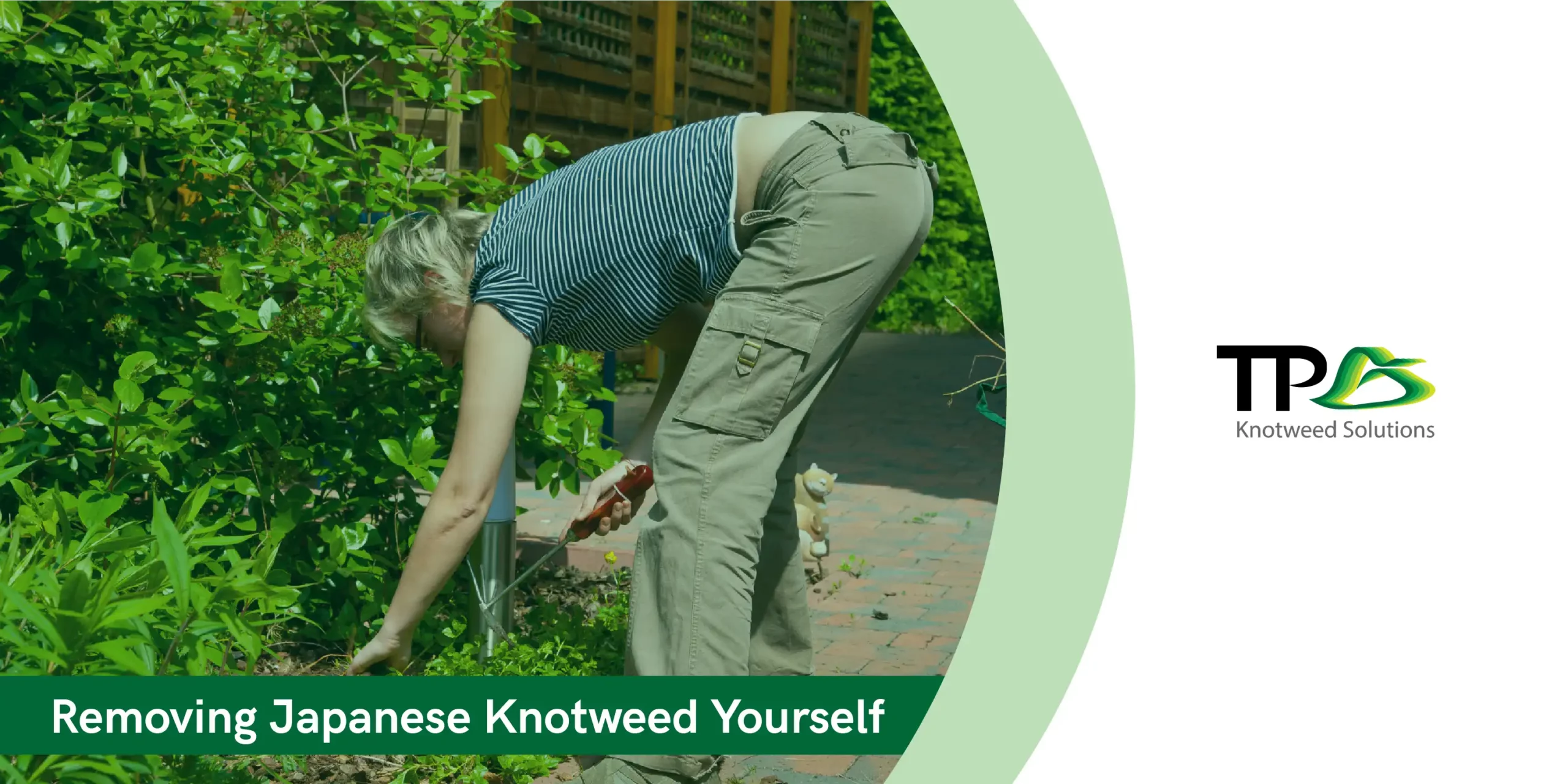Dealing with knotweed infestations on your own property can be a time-consuming and tiring task, but thankfully, is still a matter within your control. Noticing knotweed in a neighbouring garden, however, can be far more unnerving as you do not have control over any potential spreading.
Under UK Japanese knotweed law, homeowners have a legal responsibility to prevent knotweed from spreading to neighbouring properties. There is no legal obligation to notify anyone of the fact, and there is no legal requirement to remove or dispose of it on their own land, but the law strictly states they will be held responsible if knotweed spreads from their property onto neighbouring land.
The following guide will help point homeowners in the right direction on how to deal with any threat of Japanese knotweed on nearby land.
What to do if your neighbour has Japanese knotweed
Preventing the spread of Japanese knotweed from your neighbour’s garden is no easy task, and depending on the degree of the infestation, you may be limited in what you can do. The existence of Japanese knotweed, even when present on neighbouring properties, can negatively affect the value of a home. Mortgage lenders are reluctant to finance such properties, and if they are willing, they would require a solid treatment plan delivered by certified professionals.
Unless the neighbouring Japanese knotweed invades your land, there’s little you can do about it initially, other than ensuring your neighbour is aware of the infestation. It is not illegal for homeowners to grow Japanese knotweed on their property, but action should be taken to remove the plant if it threatens to spread to neighbouring land.
Always speak with your neighbour before deciding to take any action, as they may not be aware of the infestation. If they hesitate, explain the damage it could do to their property and encourage them to investigate for themselves. This should be enough for them to act.
When normal neighbourly communication channels fail, there are several steps you can take. If there is a reluctance on their part to prevent any spreading, do your best to make your point clear regarding the threat of the infestation.
Here are some facts that would encourage your neighbour to take this matter seriously:
- – Japanese knotweed grows similarly to an iceberg. According to the Environment Agency, roots are 7 metres away from visible plants and reach depths of 2 to 3 metres.
- – Japanese knotweed spreads through a fast-growing root system and can easily be moved from one plot to another under the walls of the garden.
- – knotweed is opportunistic, exploiting and undermining structures. If allowed, it will eventually cause structural damage.
- – Damage caused by invasive weeds is not covered by insurance.
- – Insurance companies attempt to recover funds from neighbours when it is proven that it was the neighbour’s knotweed infestation that caused the damage to the customer’s property.
- – Japanese knotweed waste is classified as controlled waste and currently has a tax of £72.00 per tonne to remove before the actual excavation and removal costs are spent.
- – Japanese knotweed destroys tarmac and other hard surfaces.
Can I sue my neighbour for Japanese knotweed spreading to my land?

Panic is an understandable response when Japanese knotweed is threatening to invade your property. If you’re serious about taking your neighbour to court, here’s what you need to know.
- – Since it is not a crime to grow knotweed on your own private property, your neighbour has no legal obligation to remove knotweed from their garden unless it threatens to grow into your property.
- – Homeowners are, however, responsible for keeping the plant from spreading into the wild – and if they allow knotweed to spread onto your (or someone else’s) property, prosecution or a community protection notice may follow.
So, can you sue your neighbour for a knotweed infestation? Well, yes – you may be entitled to compensation if your neighbour fails to prevent the infestation from encroaching on your property.
But perhaps a better question is…
Should I consider legal action against my neighbour for Japanese knotweed?
While suing your neighbour for a large sum of cash may sound tempting, it has many drawbacks.
- – Taking your neighbours to court can ruin your relationship with them. Remember, you still live next door when the issue is resolved.
- – Enforcement of legal claims is expensive and time-consuming.
- – Going through court rather than finding a quick and mutually satisfactory solution will only give knotweed more time to spread.
For these reasons, we would recommend that legal actions taken against your neighbour be used as a last resort.
Should I buy a house with Japanese knotweed next door?

The existence of Japanese knotweed on a neighbouring property doesn’t necessarily mean that you shouldn’t buy the house that you’re interested in. Buying a house is a significant investment, and it is advisable to use your best discretion to ensure that the future value of that property will hold strong and is not put at risk. You do not want to inherit the responsibility of taking care of any knotweed infestations in the future.
If you are looking to buy a property, ensure that a thorough survey has been conducted by qualified professionals to uncover any potential threats. If Japanese knotweed has been found on a neighbouring property, ensure that it is not encroaching on the property line.
Make the first move with a Japanese knotweed Survey
In most cases, your neighbours may not have identified the Japanese knotweed on their land, and therefore may be unaware of any damages caused.
If you suspect your neighbour’s garden contains Japanese knotweed, or the neighbouring land of a property you are looking to purchase has Japanese knotweed present, you should warn them as soon as possible, as it could potentially cause serious damage to both properties, and the surrounding environment.
Ignorance regarding Japanese knotweed is never bliss. Acquiring an independent Japanese knotweed survey to identify Japanese knotweed will help resolve any knotweed-related disputes, and ensure all parties involved stay on the right side of the law.




